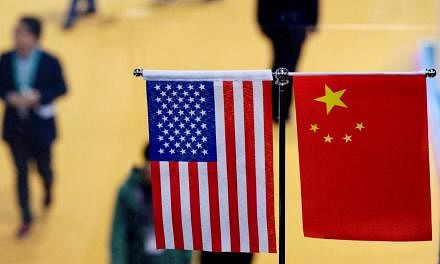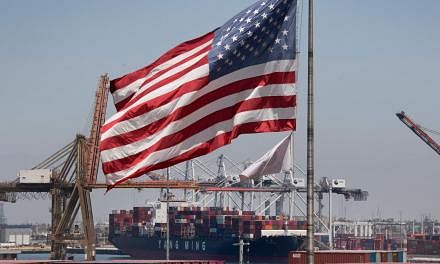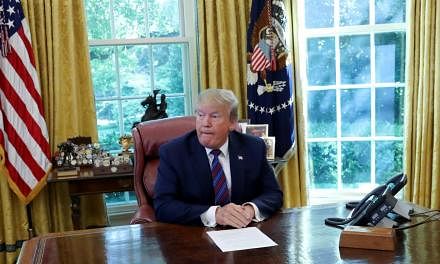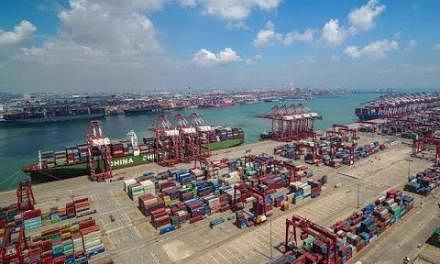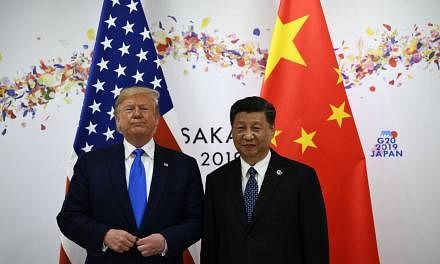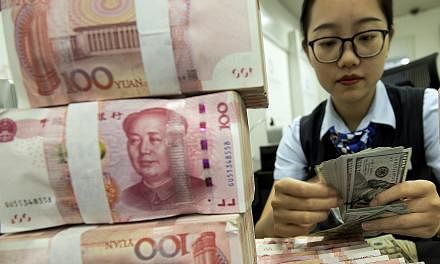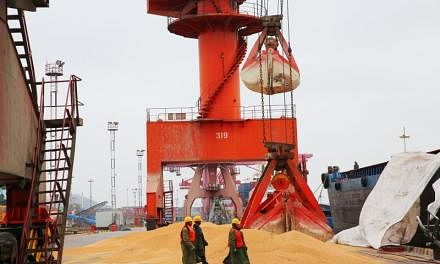SYDNEY (REUTERS) - US stock futures fell and Asian shares slid in early trade on Monday (May 13) on growing uncertainty over whether the United States and China will be able to reach a deal to end their trade war after Washington sharply hiked tariffs.
E-Mini futures for the S&P 500 shed 1.1 per cent.
MSCI's broadest index of Asia-Pacific shares outside Japan dropped 0.2 per cent, nearing its two-month low marked last Thursday.
Japan's Nikkei average sank as much as 1.0 per cent to hit its lowest level since March 28. It last traded down 0.6 per cent,
US benchmark 10-year Treasury note yield inched down to 2.437 per cent, partly as a safe haven but also on speculation a trade war would cloud global growth and thus keep major central banks accommodative.
The US and China appeared at a deadlock over trade negotiations on Sunday as Washington demanded promises of concrete changes to Chinese law and Beijing said it would not swallow any "bitter fruit" that harmed its interests.
President Donald Trump tweeted late on Sunday that the US is "right where we want to be with China", adding that Beijing "broke the deal with us" and then sought to re-negotiate.
The trade war between the world's top two economies escalated last Friday, with the US hiking tariffs on US$200 billion (S$273 billion) worth of Chinese goods after President Trump said Beijing "broke the deal" by reneging on earlier commitments. China has vowed to retaliate, without giving details.
White House economic adviser Larry Kudlow told a Fox News programme that China needs to agree to "very strong" enforcement provisions for an eventual deal, and said the sticking point was Beijing's reluctance to put into law changes that had been agreed upon. Mr Kudlow said the US tariffs would remain in place while negotiations continue.
Beijing remained defiant.
"Talks are ongoing, but our base case is for limited progress and Chinese retaliation. We see a significant risk for all Chinese imports to be subject to tariffs over the next month or so," said Mr Michael Hanson, head of global macro strategy at TD Securities.
"The market reaction will ultimately depend on whether China and the US continue to negotiate, whether the remaining US$325 billion of US imports from China also get tariffed, how China retaliates, and what happens to the 232 auto tariffs."
Under that scenario, the yuan was likely to fall between 5 to 6 per cent against the US dollar in the coming three months, said Mr Hanson, as a shock absorber to the economic impact of heavier tariffs.
The other major currencies were relatively calm, with the safe-haven yen still supported but not aggressively so. The dollar was holding at 109.72 yen, down 0.2 per cent on the day and just above a 14-week trough of 109.46.
The euro was steady at US$1.1235, while the dollar was a fraction softer against a basket of currencies at 97.295 .
The offshore Chinese yuan fell to its lowest levels in more than four months at 6.88 to the dollar. It last stood down 0.5 per cent at 6.878 per dollar.
In commodity markets, spot gold firmed 0.2 per cent to US$1,287.81 per ounce.
Oil prices were softer in line with the general mood of risk aversion. US crude was last down 0.5 per cent to US$61.33 a barrel, while Brent crude futures lost 0.2 per cent to US$70.49.


